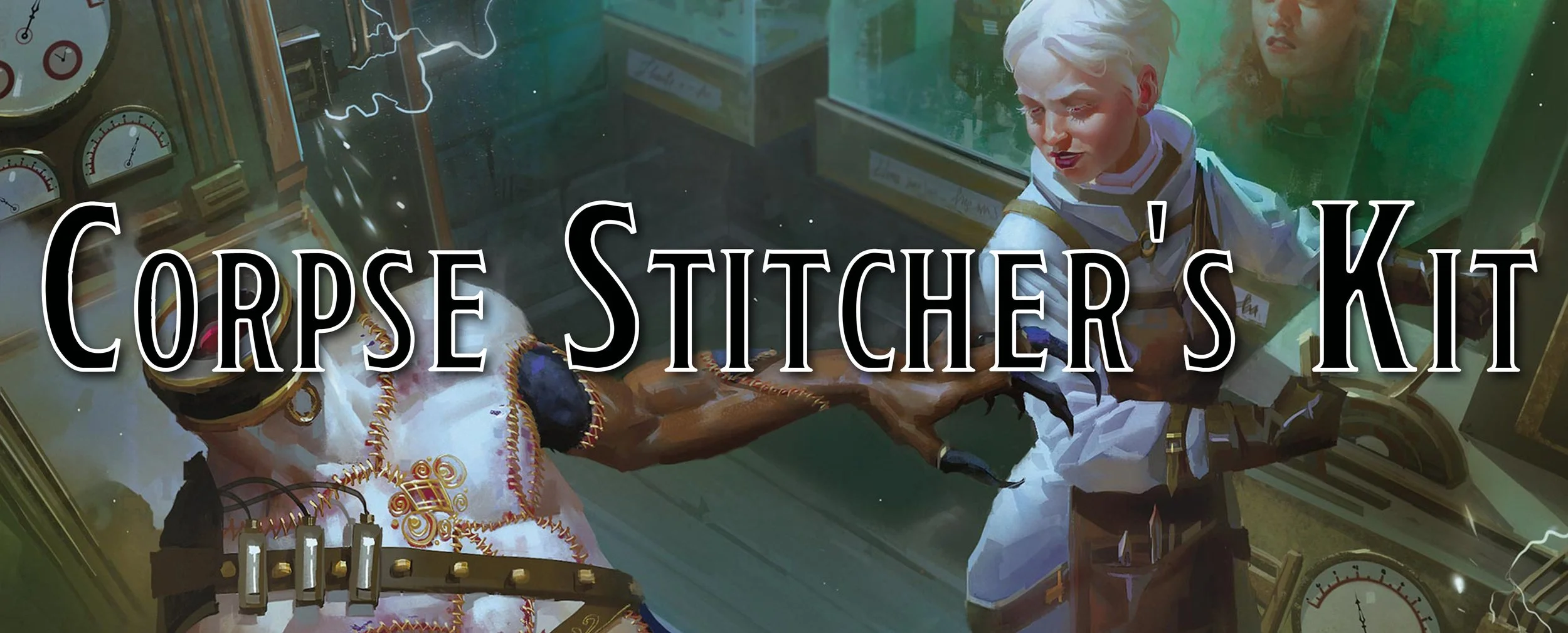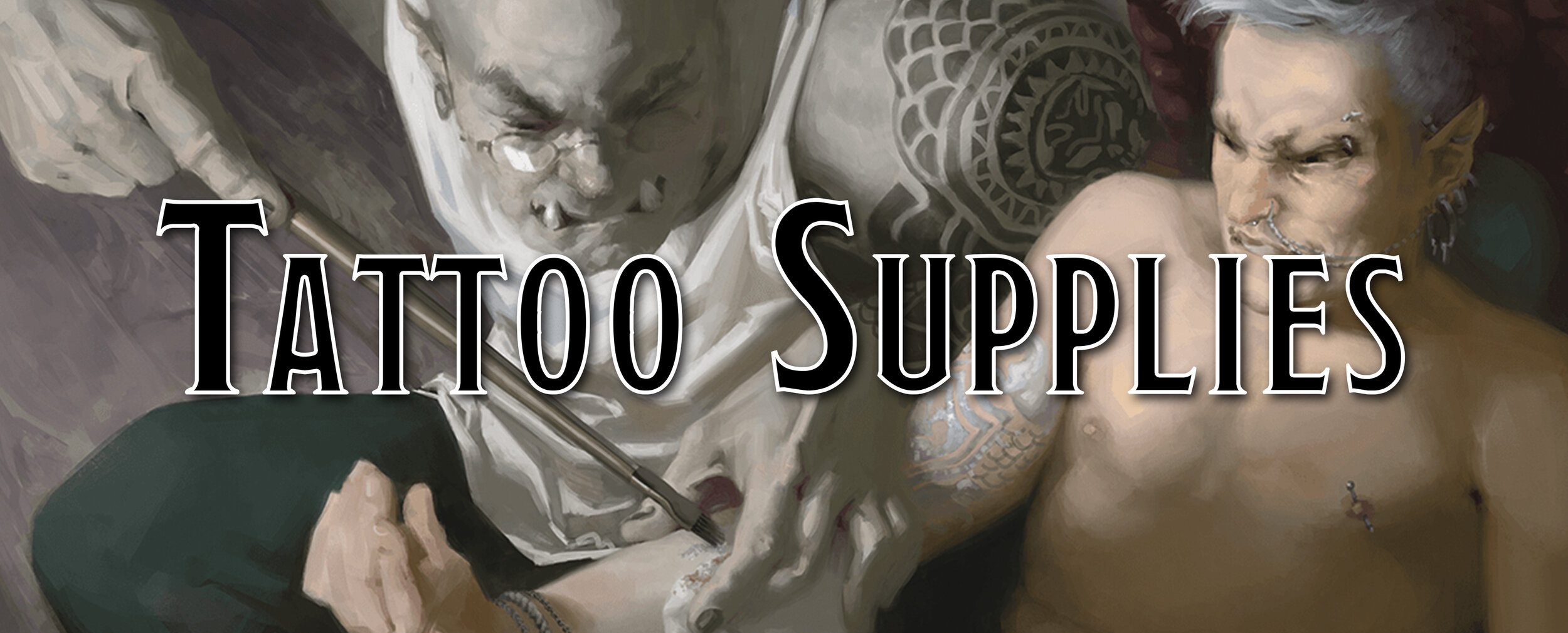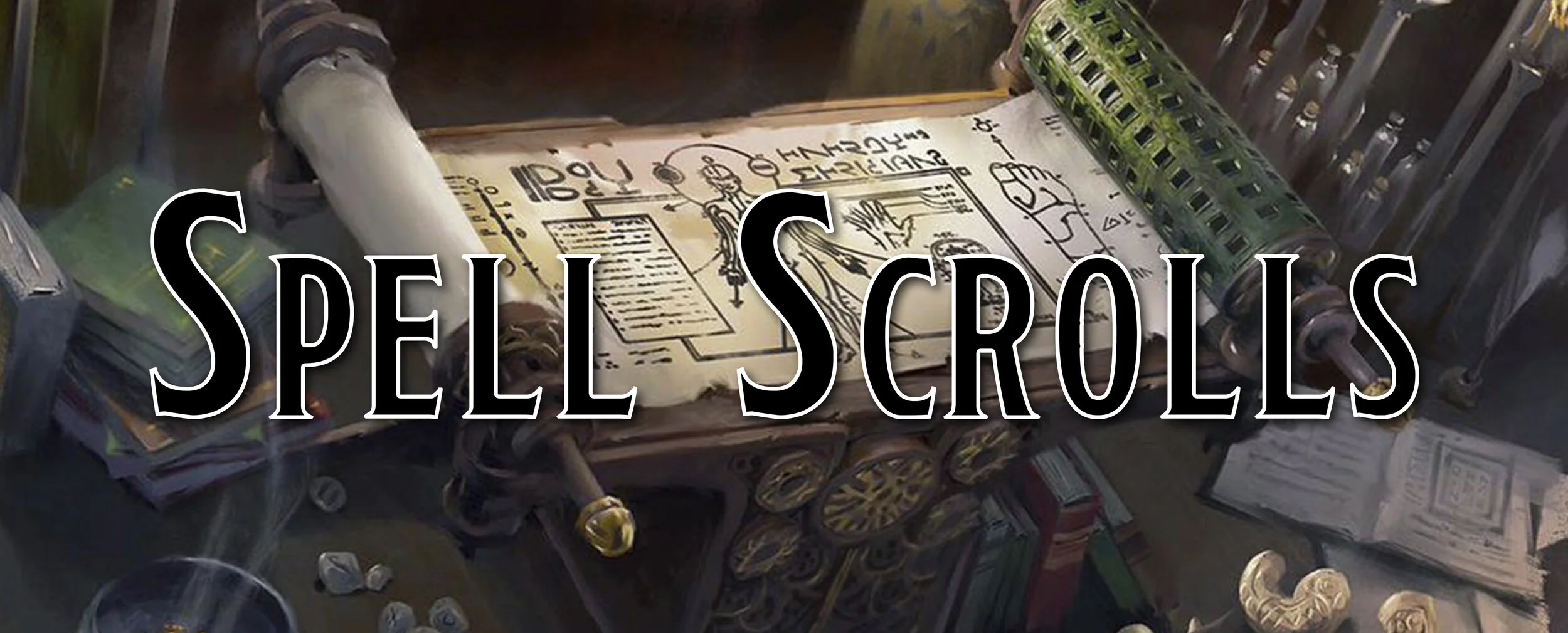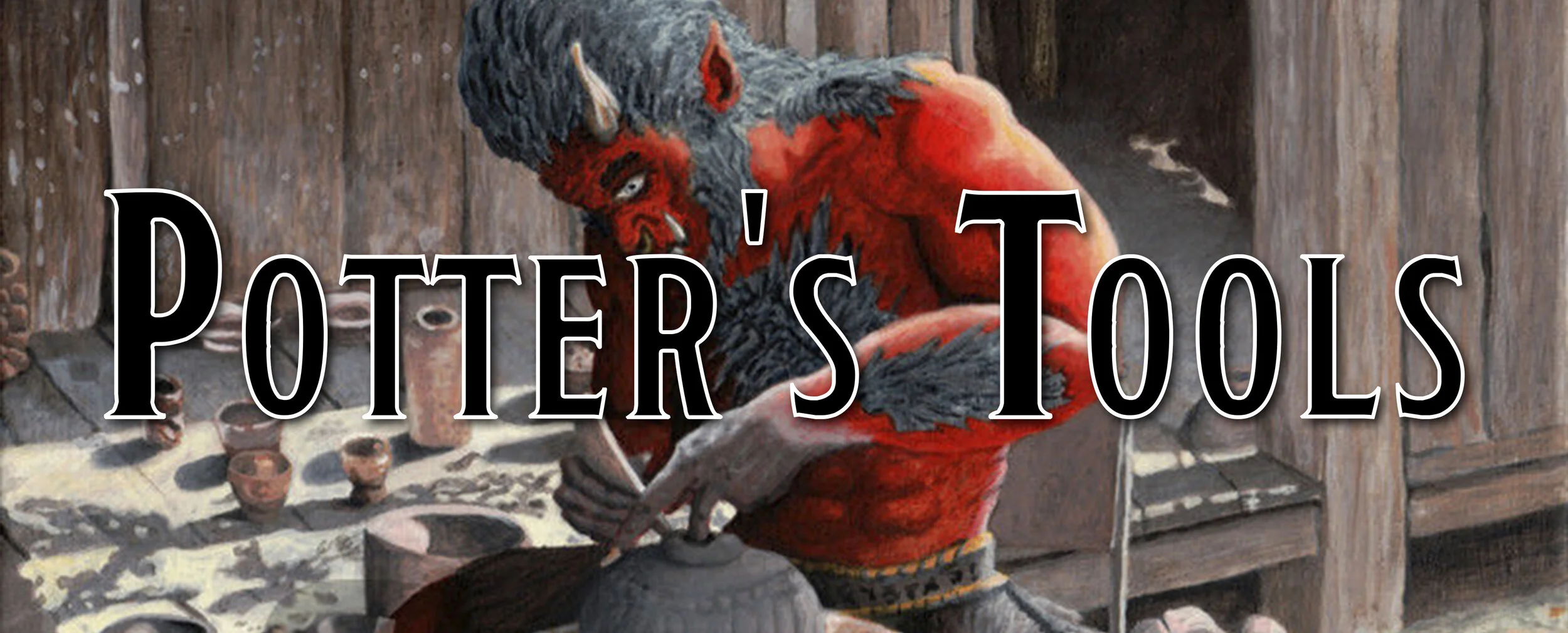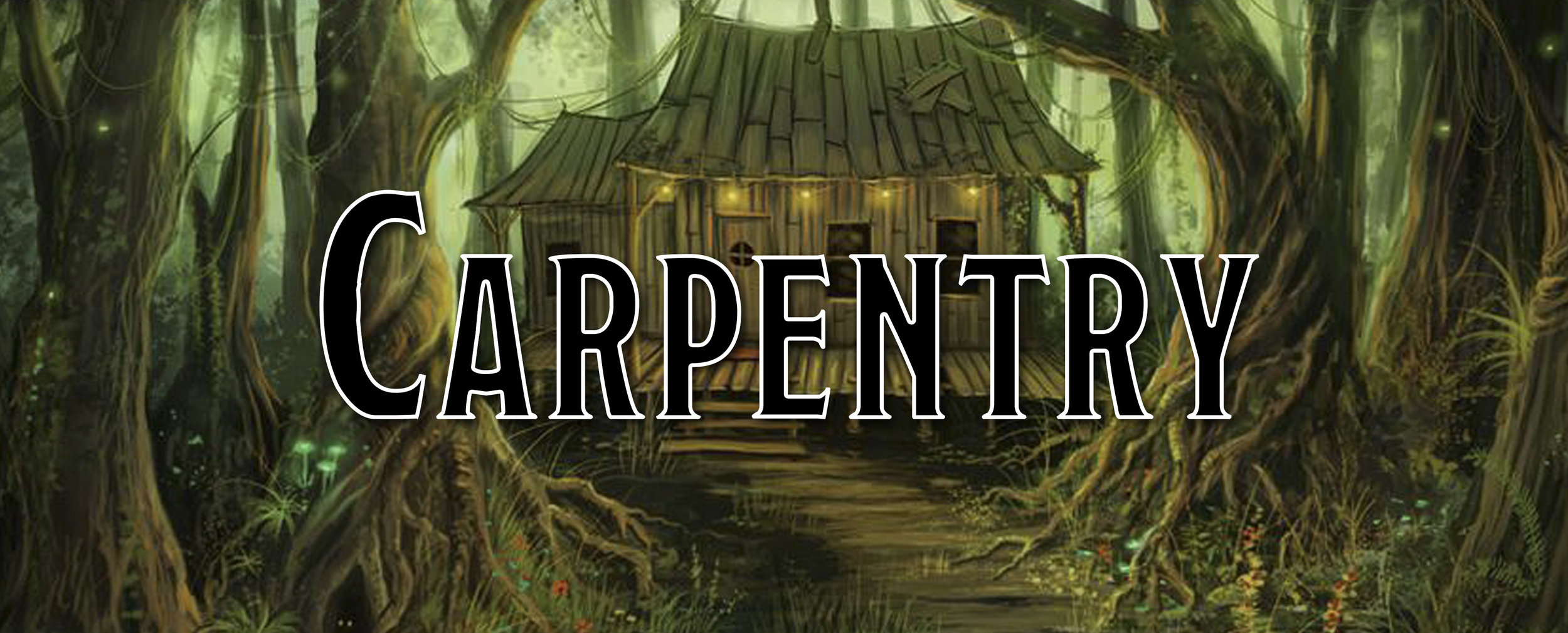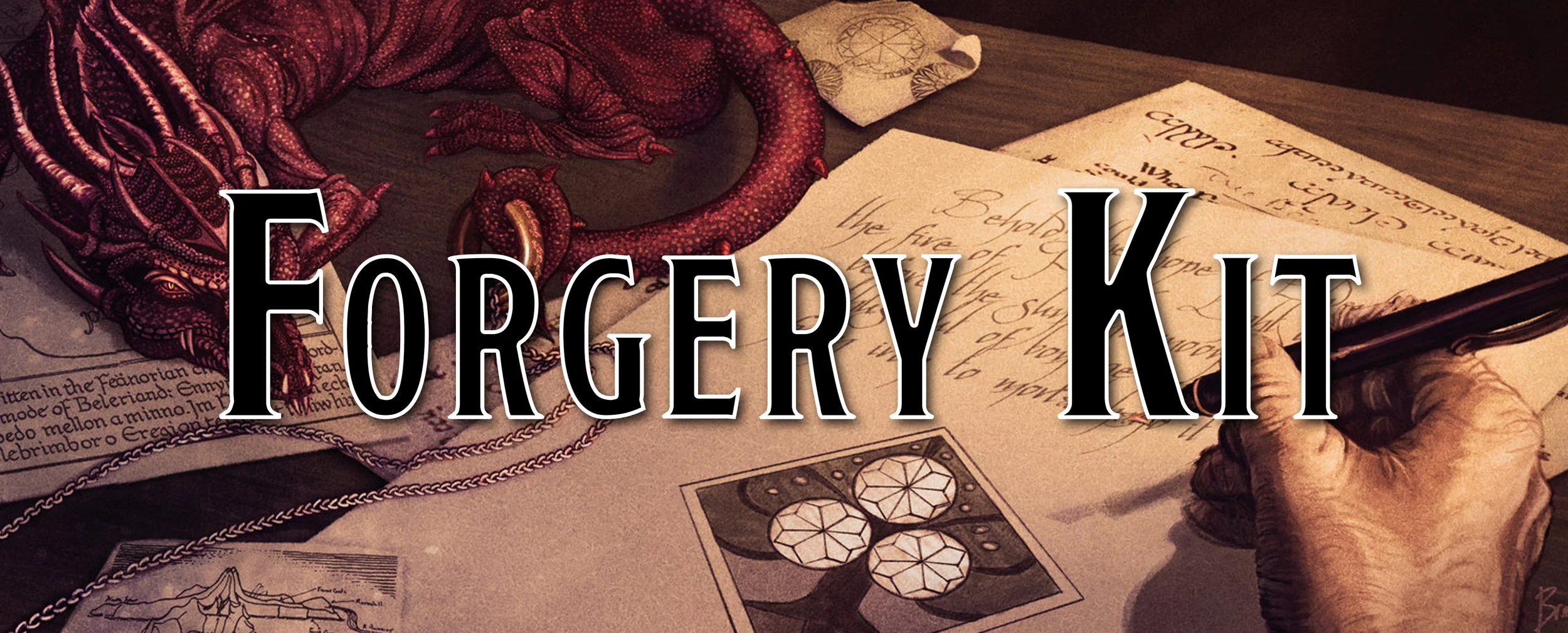Making Tools Useful in 5e: Cook's Utensils
Sometimes, when your players play DnD, they will get themselves into trouble and get a little beat up, and when they get beat up they like to drink a delicious Potion of Healing. For the party, those little 2d4+2 potions are invaluable, but start getting expensive the more and more they have to buy. That’s when one of those same players who can’t stop getting beat up will point to a part in the PHB where it says that a Herbalism Kit can create a Potion of Healing in the hope they can save a bit of their precious gold.
Now it is up to you, as the GM, to figure out how this is all supposed to work. If we check out the DMG, it just states that they can spend 8 hours a day at 25gp a day to produce an item and that they can produce it at half the cost. So a regular Potion of Healing will take 1 day and 25gp to produce so long as your table has someone who is proficient with a Herbalism Kit.
And if that is all your table wants from their tools, than carry on, but frankly… I find that uninspiring and extremely boring. So, today I am going to show you the rough process of how I create useful tools for my table by making it exciting and interesting. To do that, I am going to pick the most requested tool… Cook’s Utensils!
Cook’s Utensils
You may ask yourself, why Cook’s Utensils? Well, because I am supposed to be making a homebrew for one of my players to use in 2 weeks and I have to write a blog post to be released every Monday. So Cook’s Utensils it is!
To get us started, let’s review what Cook’s Utensils say in Xanathar’s Guide to Everything on page 80:
Adventuring is a hard life. With a cook along on the journey, your meals will be much better than the typical mix of hardtack and dried fruit.
Components. Cook's utensils include a metal pot, knives, forks, a stirring spoon, and a ladle.
History. Your knowledge of cooking techniques allows you to assess the social patterns involved in a culture's eating habits.
Medicine. When administering treatment, you can transform medicine that is bitter or sour into a pleasing concoction.
Survival. When foraging for food, you can make do with ingredients you scavenge that others would be unable to transform into nourishing meals.
Prepare Meals. As part of a short rest, you can prepare a tasty meal that helps your companions regain their strength. You and up to five creatures of your choice regain 1 extra hit point per Hit Die spent during a short rest, provided you have access to your cook's utensils and sufficient food.
It’s a nice bit of flavor, but the only mechanic in there is the last bit about regaining an extra hit point per Hit Die spent in a short rest, not exactly breaking new ground, and on top of that, there is no dice rolling! If there is one thing I know: players like to roll dice almost as much as I like rolling dice behind my GM screen and then mumbling ominously to myself.
Add Some Flavor
To get us started, let’s figure out what we want our Cook’s Utensils, and by extension any tool we want to turn useful, to do:
Add interesting options for the player. I want my players to have choices and to be engaged in the system, though we also need it quick and simple for the table.
Add a chance of meaningful failure. Meaningful failure will be the cost and time associated with the creation of an item, if it failure means nothing than the fun is lost.
Create incentives to use this system. There is no point in doing all this work in making something if they don’t want to use it.
With these three things in mind, let’s go ahead and get started! First we need to come up with what exactly Cook’s Utensils are. I think that going with the prewritten one from Xanathar’s will work well for our uses, but we can always go back and update as needed.
Second, we need to decide what ability our players are using to produce cooked goods. One could make an argument for any ability, but I am going to go with Wisdom with a small note that certain recipes, like breads, will require them to use their Intelligence. I think that my other half on this site, Chris, may fight me on that and he has every right to as he used to be a chef, but he’s not writing this article, I am!
Now that we have decided what ability to use with our Cook’s Utensils, we have to come up with some awesome flavor to go along with everything. For the player’s finished product, we will call them Signature Dishes and split them up into three categories to work with: Snacks, Everyday & Gourmet. These categories will also have three qualities to work with: Select, Choice & Prime (for those curious, those are the different qualities of beef that I stole the descriptors from).
Our categories will determine how long our Signature Dishes take to cook and how long they will last. Snacks will be quick items that a player can throw together with limited ingredients, Everyday will take a short rest to prepare and Gourmet may take a long rest to even several days. Our qualities will determine how effective an item is at giving its small boost starting with Select as the weakest and Prime being the best.
The reason I am splitting up the Signature Dishes into three categories is to allow players to have a bit more control over what they create and to have clear time and cost divisions for items. I am also continuing with the three theme in the qualities that the player can produce. This will work off of the die rolling mechanic, the higher they roll the better quality they get, this way our players can still create things even if Wisdom/Intelligence is a dump stat of theirs and this tool isn’t just tossed aside after all of our work.
Adding Spices
Now that we have the rough outline for our Signature Dishes, we are going to add in three more mechanics: Cold, Compost & Fresh. I wish I could say that I came up with the Cold mechanic, but that was one of my clever players that was helping me spitball this improved tool.
When an item goes Cold, this mean that it has lost most of its potencies and the players only have a short time to use the item before it becomes Compost. To be clear, I choose the term Compost as I thought it was fitting of our cooking theme, but the food is still good to eat, it just doesn’t have any special abilities when consumed. The last term, Fresh is a special term for the types of ingredients that your player can gather to help boost their chances of successfully creating their Signature Dishes with the trade off of paying more for ingredients. (Heads up: Fresh is just something a little extra for my players, but isn’t something that you have to add if you don’t want to deal with the added complexity it brings.)
Now that we have our terms figured out, let’s figure out how they work. Let’s say you are creating a fantastic meal of Meatballs, obviously Meatballs isn’t something you can just throw together in a few minutes, but according to several recipes it’s not out of the realm of possibilities to make it in an hour. So we will say that Meatballs are an Everyday - Signature Dish.
Now we have to figure out a few other things about our meatballs, this includes: Bonus, Ingredients required, when it goes Cold/Compost, and if it should get bonuses for using Fresh ingredients.
I like the idea of our Meatball dish being hearty and with that in mind, I am going to decide that it gives a bonus to Constitution saving throws. I think a small bonus like +3 won’t be too crazy, and we will have the duration of this bonus be dependent on the quality of the recipe, Select - 1 hour, Choice - 2 Hours & Prime - 5 Hours.
We will have our Meatballs go Cold after 8 hours and then turn to Compost after 24 hours, or 3 times our Cold duration. Using Cold x 3 as our consistent Compost timer helps take some thought load off of us and we can focus on more important things.
Next, we need to determine ingredients and if it can take advantage of our Fresh system we are going to put into place. Without going to deep, we can immediately think of a few things in Meatballs: Meat for the main part, berries to make a nice sauce and various spices to make it truly delicious. As for our Fresh system, I think having just-butchered meat and fresh picked berries could easily lift this dish up and so we will go ahead and add it in. For Fresh, I am just going to make it a flat +2 bonus to the cooking rolls and increase the cost by a small amount.
Speaking of cost, I am setting the cost at 15gp for 7 meals. This is a pretty sharp cost as the PHB on page 158 specifies that a chunk of meat is 3sp, but the benefit it provides more than covers the expenses it takes to create it. At later levels this cost will be less prohibitive, but if they can cast Wish then a +3 to Constitution saving throws isn’t something to be too worried about.
You may be worried about your players abusing this system and giving them huge boosts and making themselves far too powerful for your encounters, we will cut that off by leaving a note that a player may only gain the benefits of one Signature Dish per short rest.
Now, that we have the majority of our Meatball dish figured out, we have to come up with DCs. I am going to work off of the idea of a DC 10 being a Medium difficulty and have our three qualities set to DC 10, DC 15 & DC 20. A DC for a Signature Dish should increase with the bonuses that the dish provides. An extremely hard DC should offer more than just a small bonus, and I will provide a few dishes for you to work off of.
Clean Up
This is all a bit confusing as we are building it slowly on this article, but fear not. I have already gone on GM Binder and have created several more Signature Dishes to help get you started! I think that our system offers a fair bit of flexibility while staying simple at the same time. I am not trying to make this a huge focus of table time, but rather a fun mini game that a player can do to help out their team.






